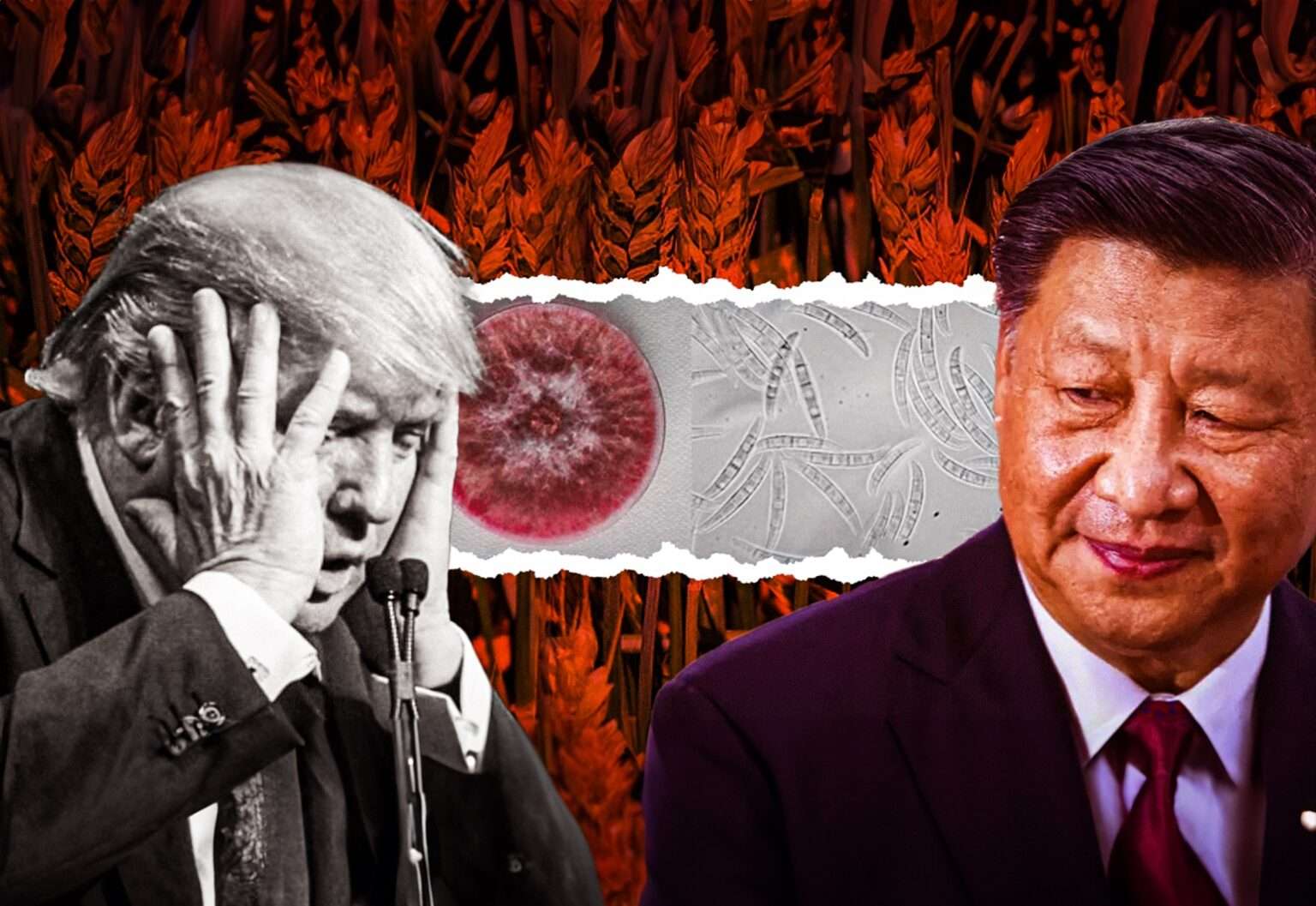On June 3, 2025, U.S. authorities announced that Yunqing Jian, a researcher at the University of Michigan Zunyong Liu from China had trafficked Fusarium graminearum, a fungus classified in scientific literature as a likely agroterrorism agent. Fusarium graminearum is responsible for the plant disease Fusarium Head blight (FHB), which has significant impacts on wheat, barley, oats and corn, which are the cornerstones of the world’s food systems. This was not only a customs standard or academic honesty; it was a potential violation of biosecurity with repercussions that extend well beyond U.S. borders. According to the FBI, their actions were, in turn, an “imminent threat to public safety.”
Understanding Agroterrorism: The Silent Threat to Global Food Systems
Agroterrorism is a form of bioterrorism that entails intentionally infecting a nation’s food supply chain with plant and animal diseases to create mass disruption. To achieve economic paralysis, societal panic, and even manipulate food systems for political gain. Biological agents are different compared to nuclear weapons or conventional terrorism because they are silent and often slow-moving. A few spores or a few cells can destroy crops or livestock without being detected, and when it is too late to do anything about it. Long before agroterrorism, the U.S. Department of Agriculture understood that open field agriculture, livestock farms, and grain storage facilities are especially vulnerable to a biological threat. Tragically, the very openness of modern agriculture provides easy access to it.
Fusarium graminearum is the most viable candidate for such use. Fusarium graminearum produces mycotoxins (toxic substances produced by fungi), including deoxynivalenol, which will render those crops unsafe to eat. The fungus is nearly impossible to eliminate from the soil and can persist in the soil for many years. Thus, Fusarium graminearum can potentially affect agriculture and economies for an extended period of time. Countries dependent on staple foods like grains would not only incur the costs of agricultural losses domestically, but also government intervention in the form of restrictive trade or sanctions on that commodity, and possibly no food available, leading to even more food problems and national panic.
Biological Warfare in the 21st Century
Biological warfare is frequently portrayed in fiction as dramatic pandemics unleashed by people in urban centers. However, the following is a subtle and more probable event: attack the basis of civilization, which is food. Different from pandemics, which typically unite countries against a common adversary, agroterrorism is more difficult to track, politically volatile, and in many circumstances exposes major fault lines in national politics. A pandemic puts a government in a position of reduced food security, essentially forcing the government to squeeze exports, invoke the declaration of martial agricultural law, or publicly declare retaliation against a suspect. Responses can cascade into international incidents that involve global rivals, as feared with the recent incident involving Chinese nationals. The recent smuggling incident may or may not be state-sponsored, but it certainly is a signal of a growing trend of both state and non-state actors using biological leverage. A good example is academic researchers, who may, for the sake of science, be obtaining or weaponizing knowledge that has a dual-use purpose: it has value in research but may have negative consequences in evil hands.
Global Implications: Agriculture as the Next Frontier of Warfare
In today’s interconnected world with supply chains that stretch around the globe, it does not take much to create ripples worldwide from a localized outbreak. For example, head blight would cause a cascading effect through world markets if it spread unchecked in U.S. wheat-producing countries. Grain prices would surge, setting off inflation, provoking famine in countries that import grain, and possibly causing civil disorder. Furthermore, accusations of agroterrorism, even if no evidence is found, can create international tension. If a pathogen can be traced to one country, intentionally or otherwise, then the geopolitical fallout could be enormous. It may lead to sanctions, retaliation, or a severing of diplomatic relations, resulting in escalating regional disputes to an international crisis. This also plays into nationalist narratives of food sovereignty, enticing heightened surveillance state measures, restrictions on foreign researchers, and further militarization of food systems, ultimately another assault on academic freedom and also global cooperation in research.
Conclusion: Agriculture Is Now a Geopolitical Weapon
Two Chinese researchers caught smuggling Fusarium graminearum are involved in more than just a legal case. They are involved in a call to action. Biological agents targeting crops, not people, are the next battleground for geopolitical tension and asymmetric warfare. As food security translates to national security, our agricultural systems can no longer be seen as solely farmers’ responsibility, but a global imperative. Without international cooperation, strong oversight and strategic action, the next world conflict may not begin with bombs or bullets, but with blight.

